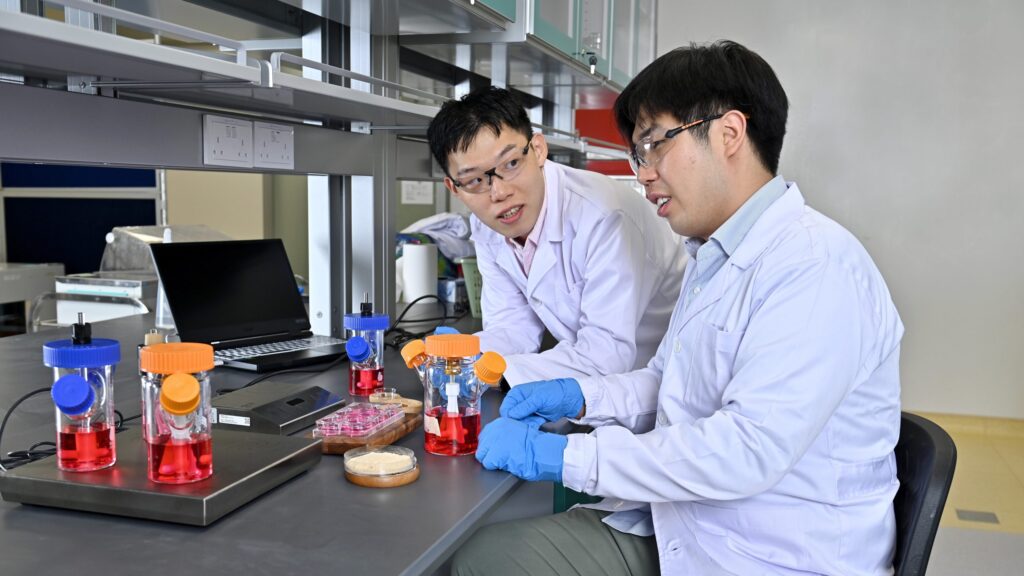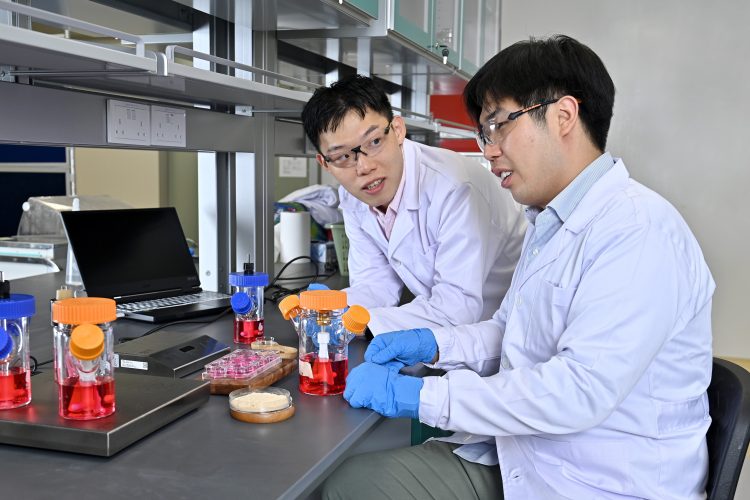New Bezos Centre for Sustainable Protein Launches at NUS

National University of Singapore unveils new facility to advance alternative proteins


Credit: National University of Singapore
Last week, the National University of Singapore (NUS) celebrated the opening of the Bezos Centre for Sustainable Protein, a pioneering initiative in Asia aimed at revolutionising alternative protein research. This new facility, supported by a generous $30 million grant from the Bezos Earth Fund, marks a significant milestone in the quest to develop hybrid proteins that offer the taste and affordability of traditional meat products while promoting sustainability.
The mission
The Centre’s mission is to address the pressing challenge of feeding a growing global population by focusing on regional food preferences and driving innovations in food security. A key area of research will be biomass fermentation, which explores utilizing food waste, such as tofu by-products, to cultivate high-quality protein sources like algae.
The NUS Centre joins a global network of Bezos Centres dedicated to sustainable protein research, including those at Imperial College London and North Carolina State University. These centres collectively aim to advance sustainable food technologies, with a focus on microalgae, biomass fermentation, cultivated meat, and plant-based solutions. The goal is to produce next-generation proteins that are both nutritious and widely accepted.
Professor Tan Eng Chye, President of NUS, emphasized the collaborative effort required to tackle climate change and enhance food sustainability. “The world’s increasing demand for meat is putting immense pressure on our food systems. With the support of the Bezos Earth Fund, we are committed to leveraging our strategic position in Asia to foster innovation and collaboration, ensuring that we develop sustainable protein solutions that benefit both consumers and the environment,” said Professor Tan.
Sir Andrew Steer, President and CEO of the Bezos Earth Fund, underscored the importance of the Centre in the context of global food systems. “Asia is crucial to the future of sustainable proteins, and Singapore is at the forefront of this transformation. The $100 million commitment to the Bezos Centres for Sustainable Protein, including the new Centre at NUS, represents a significant step towards reshaping global food systems and addressing the needs of the 2.3 billion people in East and Southeast Asia.”
The launch
The launch event was honoured by the presence of Mr. Tharman Shanmugaratnam, President of the Republic of Singapore and NUS Chancellor, along with other dignitaries. The Centre will be spearheaded by 23 Principal Investigators from NUS, Nanyang Technological University, Singapore Institute of Technology, and ETH Zurich. Their work will include developing talent through education initiatives and venture-building programs aimed at translating research into viable solutions.
Professor Zhou Weibiao, Head of the NUS Department of Food Science and Technology and Acting Director of the Centre, highlighted the Centre’s focus on addressing both consumer and industry needs. “NUS is ideally positioned to lead in alternative protein research, thanks to our extensive expertise and partnerships. We are excited to make a tangible impact by translating cutting-edge research into affordable, nutritious alternatives,” said Professor Zhou.
The Centre will closely collaborate with industry, government, and academic partners to bring its research to market, focusing on microalgae, biomass fermentation, and both cell-cultured and plant-based proteins. This approach aims to integrate essential aspects such as nutrition, safety, and consumer acceptance into its research initiatives.
Source: newfoodmagazine.com

